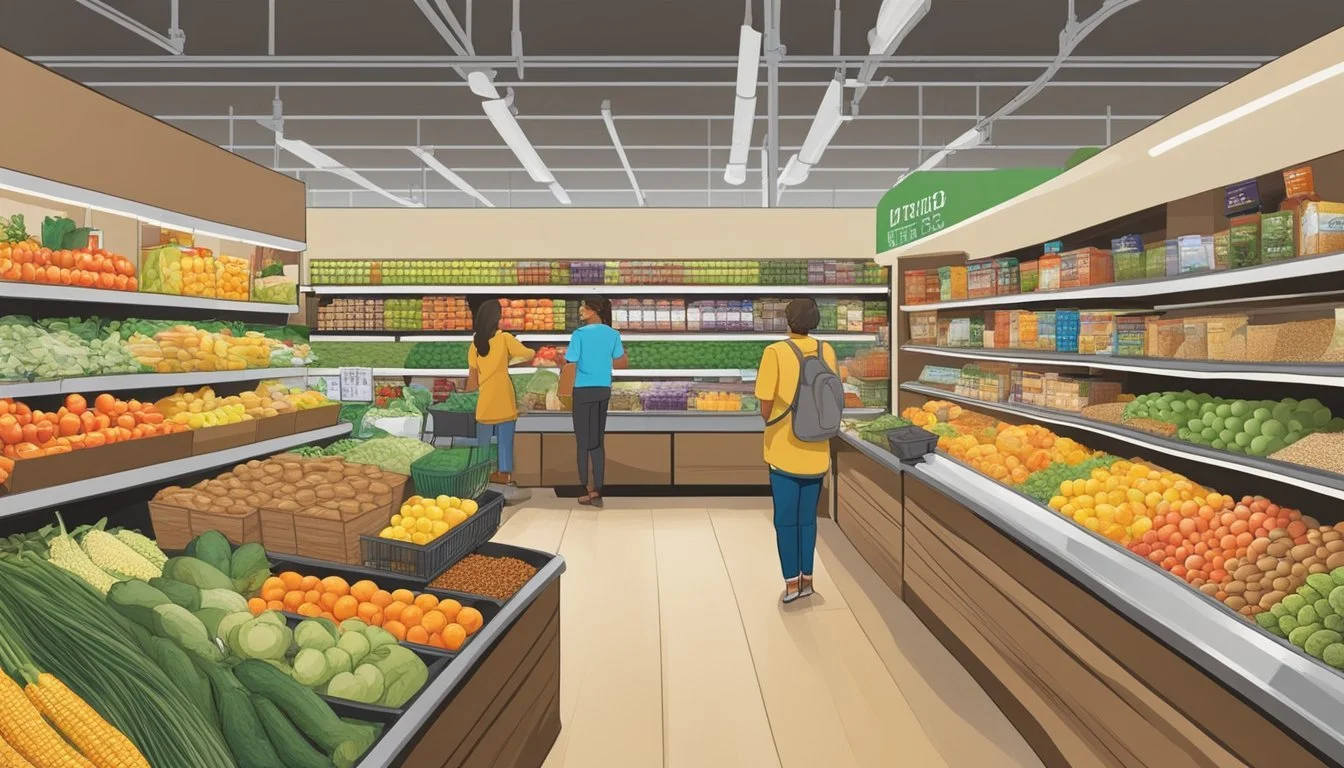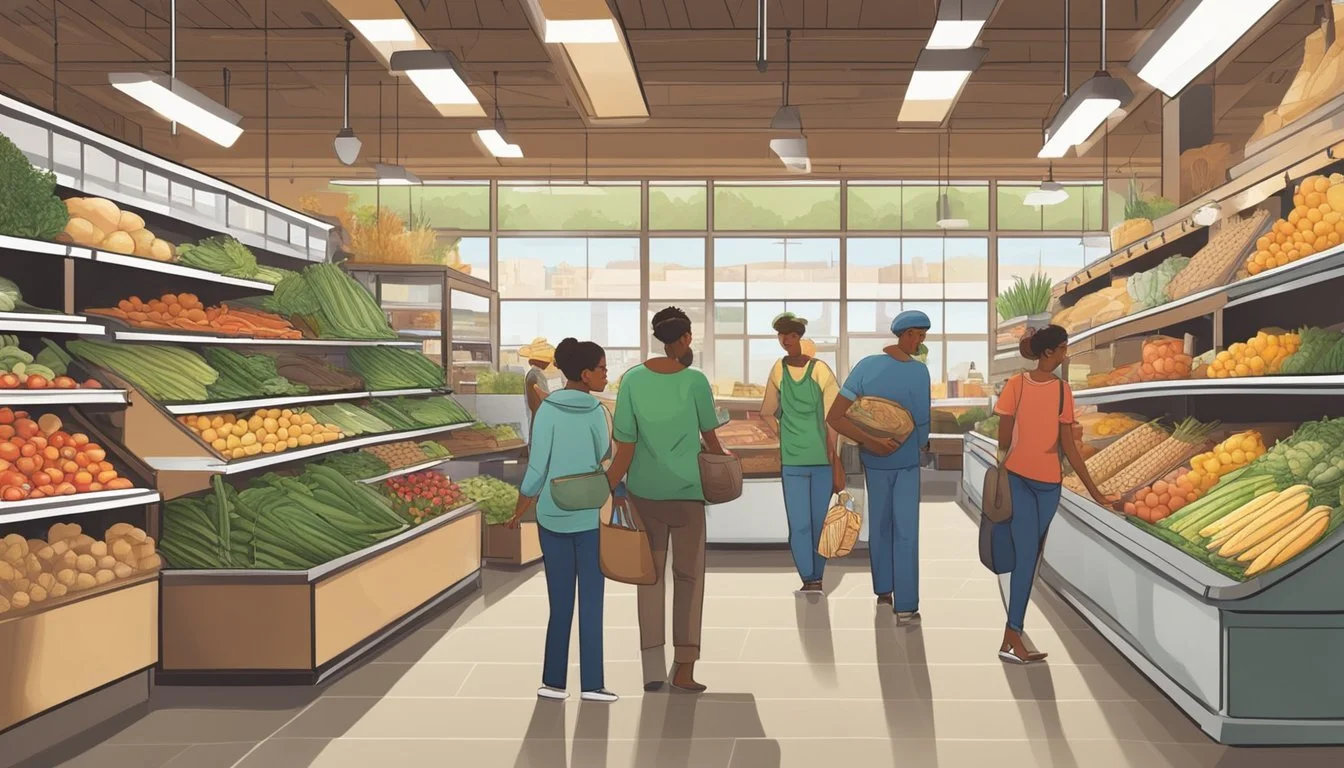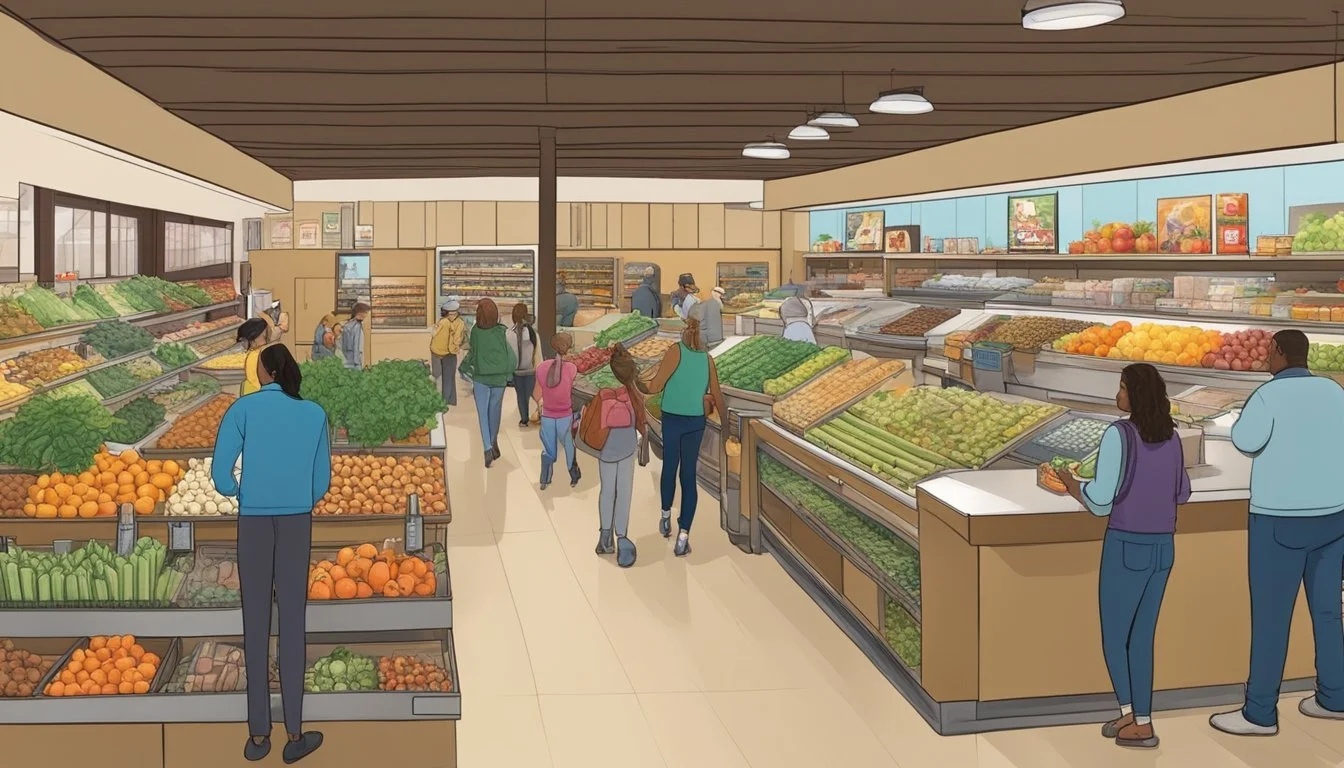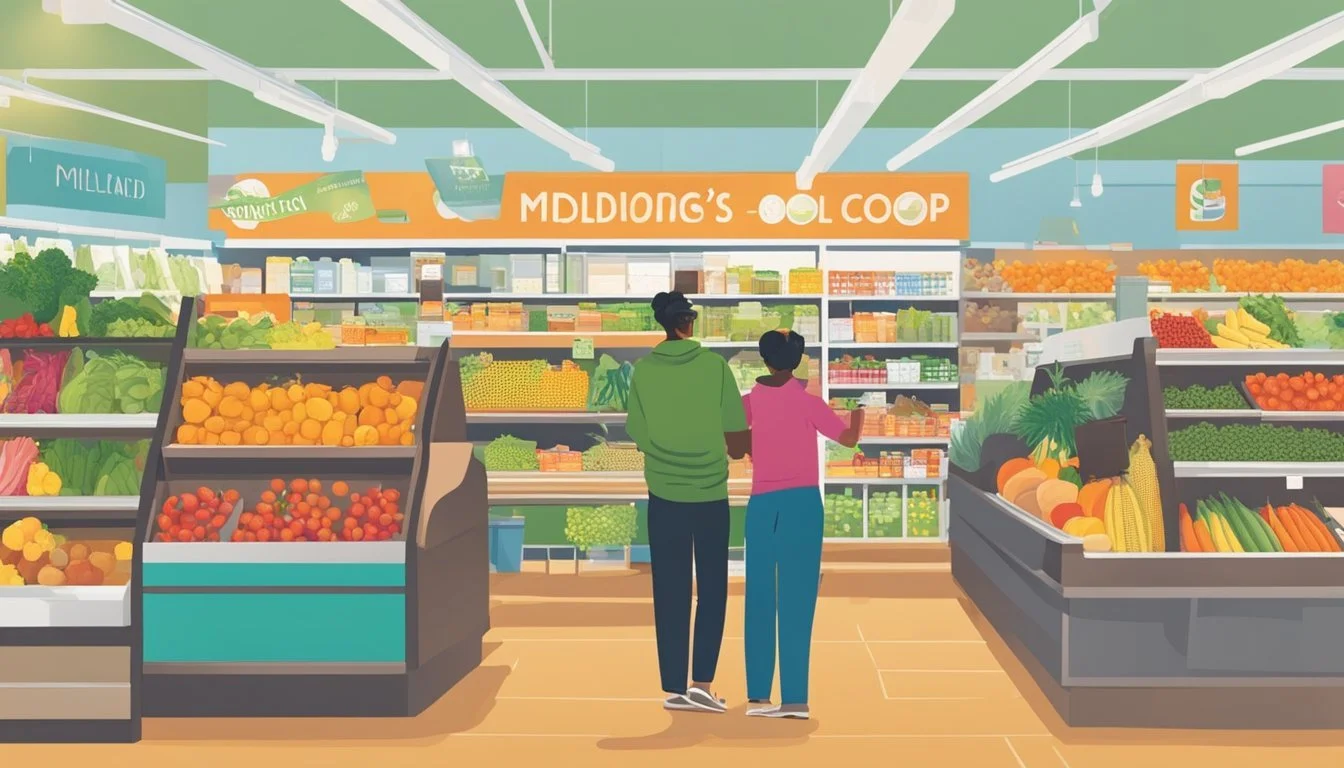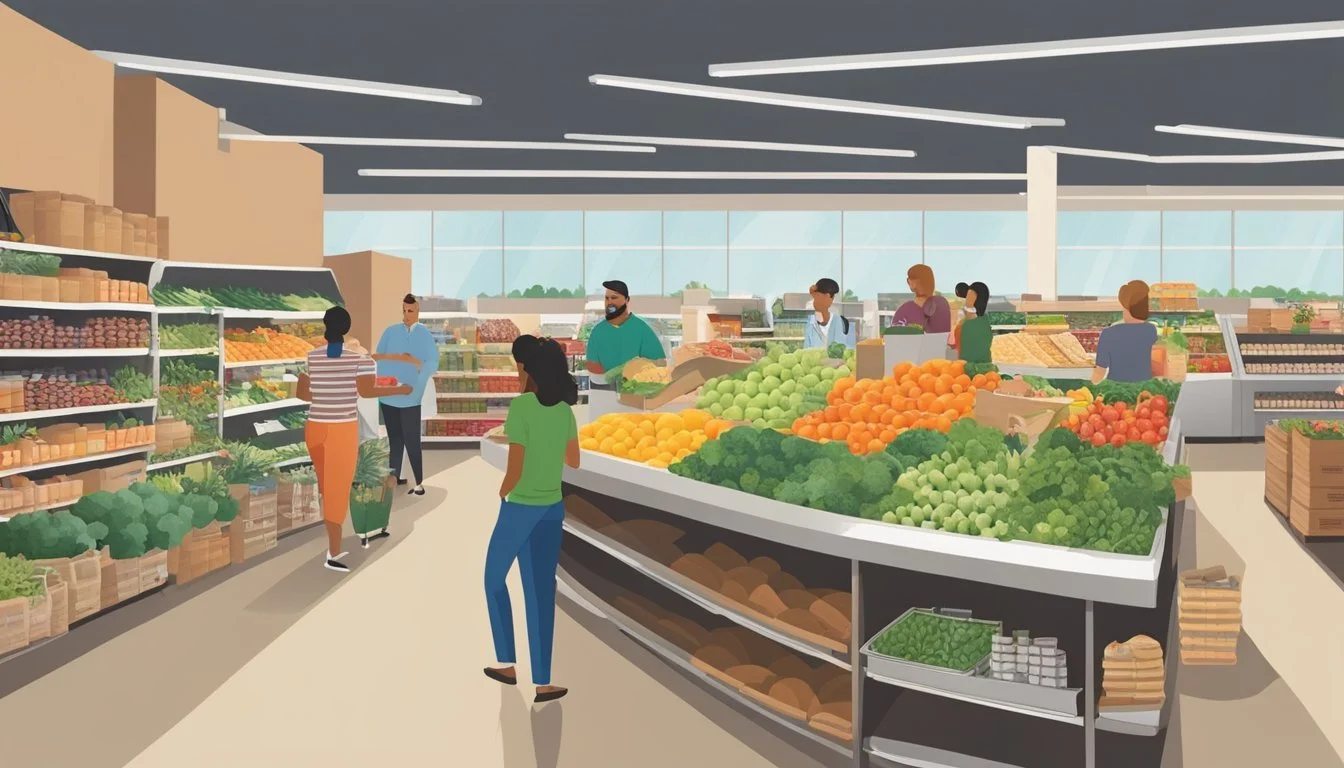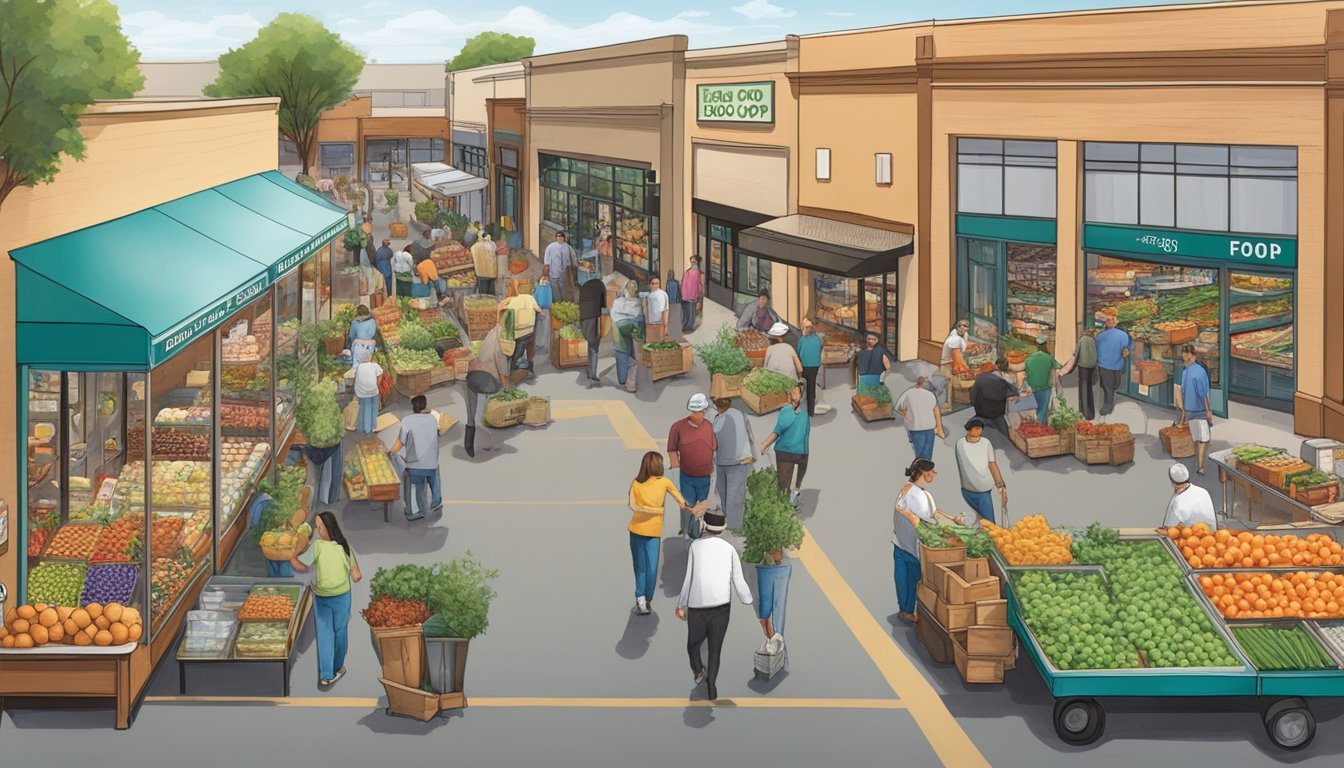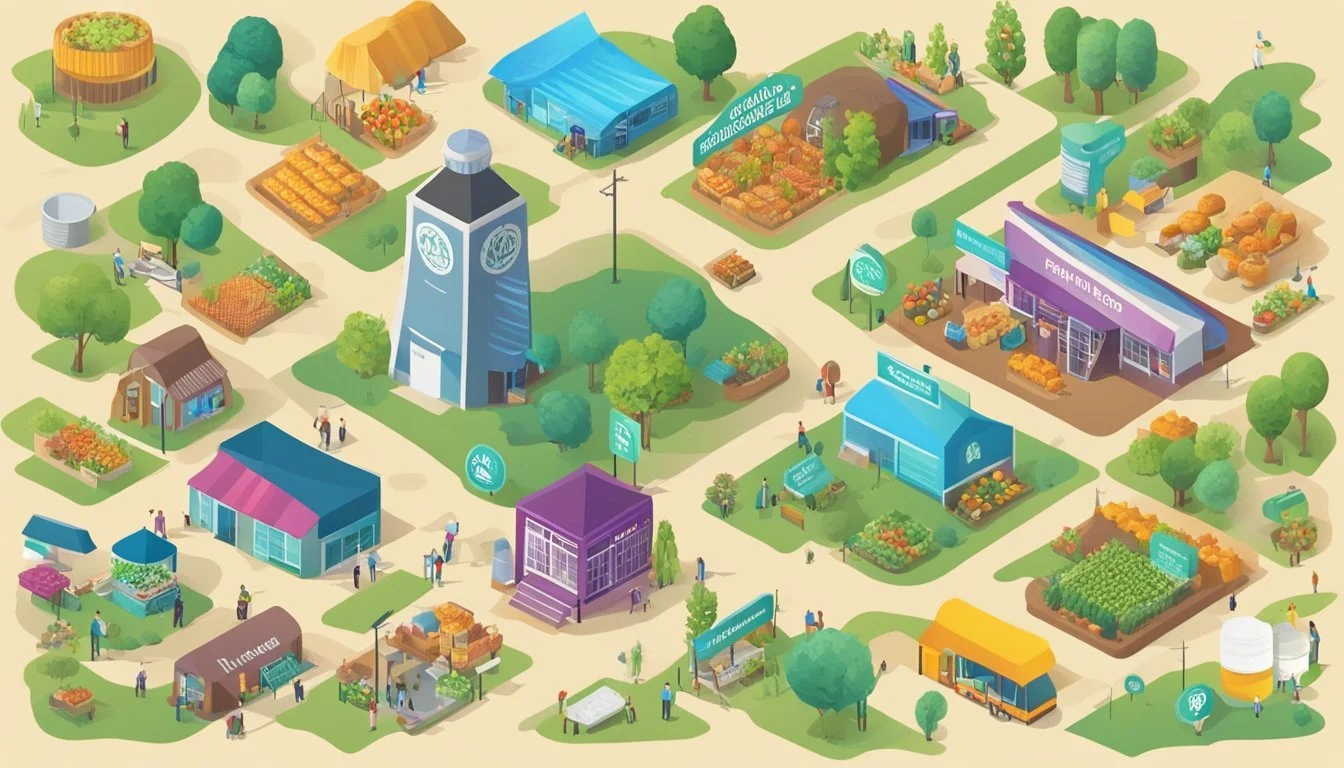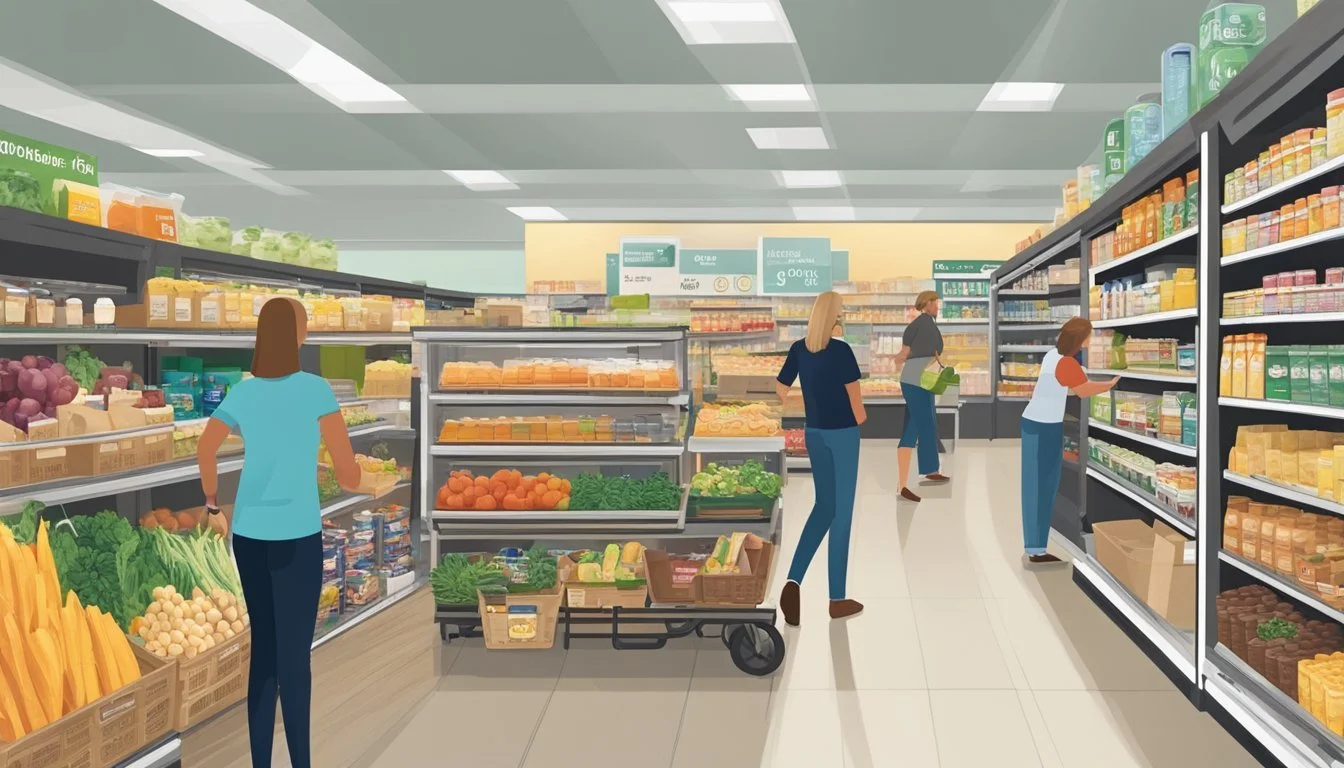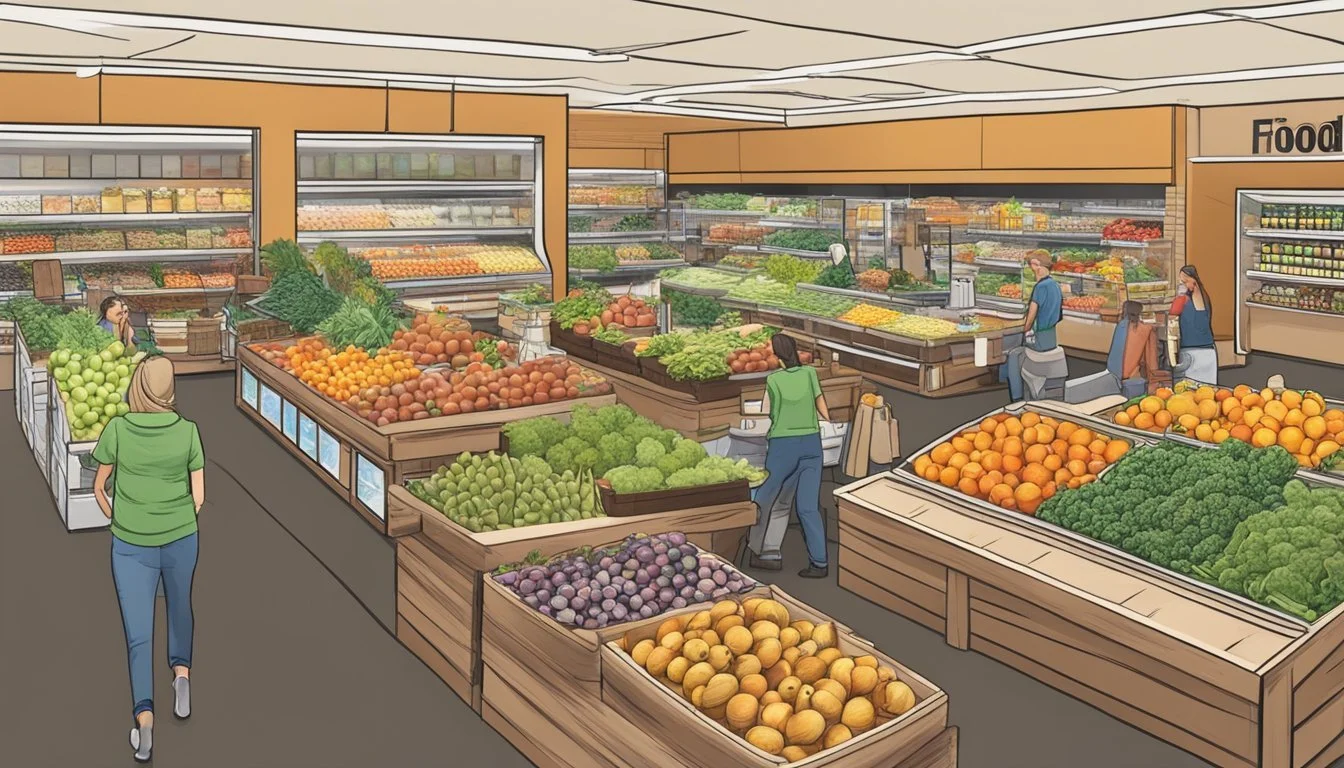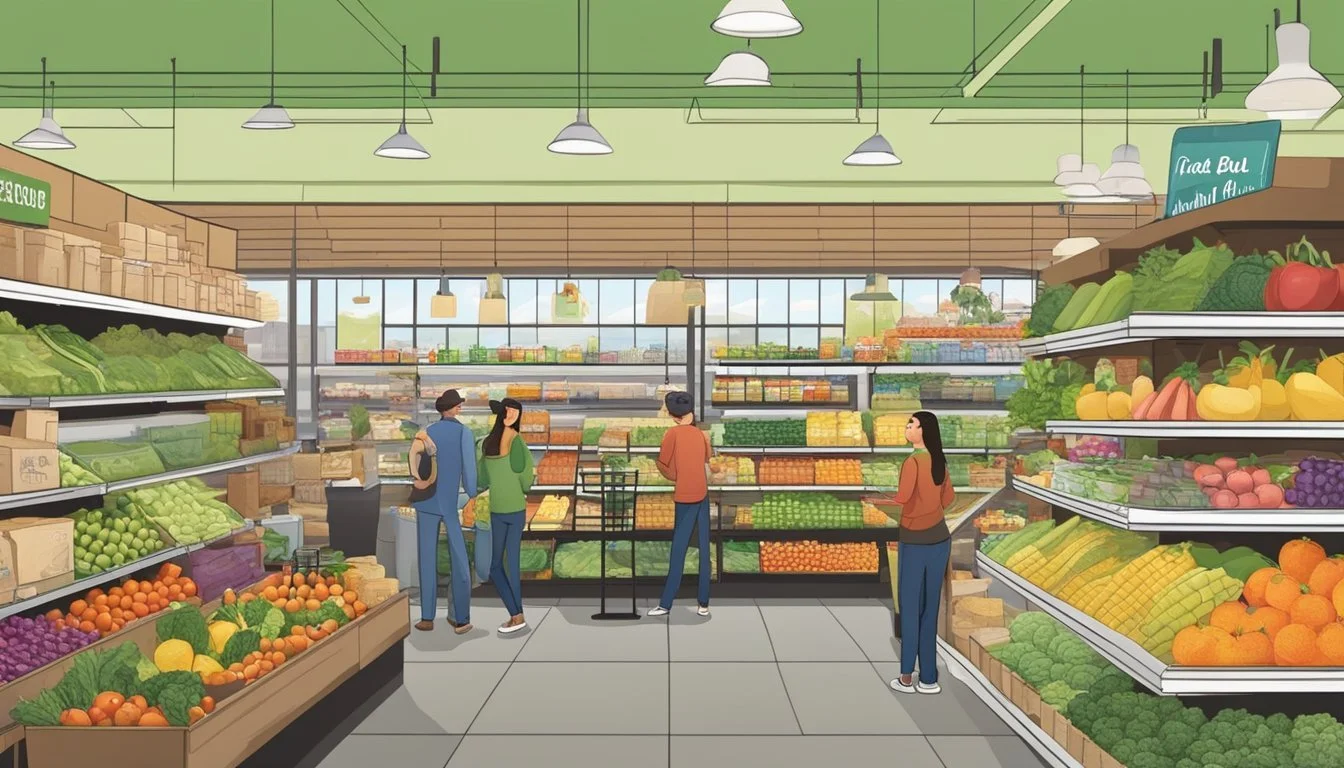Guide to Food Co-Ops in Midland, TX
Your Essential Resource
Food cooperatives, commonly known as co-ops, offer an alternative shopping experience that emphasizes locally sourced and organic products. In Midland, Texas, residents have the opportunity to partake in this community-oriented approach to buying food. These co-ops often provide a selection of organic fruits and vegetables, raw and pasteurized dairy products, and grass-fed meats, sourced directly from local farmers and producers. Unlike commercial grocery stores, co-ops allow members and sometimes non-members to purchase high-quality, sustainable foods while also supporting the local economy and agricultural community.
Midland boasts a local co-op presence that facilitates the connection between residents and the agrarian base of their environment. In addition to offering fresh produce and products, co-ops in the area may also carry feed, farm and ranch supplies, catering to a diverse range of needs within the local community. Such establishments prioritize the health of both the consumer and the producer by encouraging practices that contribute to the sustainability of the local food system. Co-ops in Midland, TX, operate not just as food outlets but also as educational hubs where one can learn about the benefits of supporting local agriculture and the impact of food choices on personal health and the environment.
What Is a Food Cooperative?
A food cooperative, commonly known as a food co-op, is a retail entity that is owned and controlled by a group of individuals for their mutual benefit. These entities focus on providing quality food products and are deeply rooted in community values.
History of Food Co-Ops
Food cooperatives have a storied history dating back to the 1800s when they emerged as a way for consumers to acquire food products at fair prices while maintaining certain ethical standards in sourcing. They evolved from small, informal groups into organized retail stores that operate on the principles of mutual assistance, democracy, and equitable distribution of profits.
How Food Co-Ops Work
Food co-ops work on a membership-based model, though they often allow non-members to shop:
Membership: Individuals can purchase shares and become part-owners.
Governance: Run democratically, often one member gets one vote.
Product Sourcing: Prioritizes ethical procurement and often features organic and natural foods.
Pricing: Provides food at reasonable prices with potential member discounts.
Community Impact: Profits are often reinvested into the local community or used for social causes.
Food cooperatives are unique in their commitment to member involvement in decision-making and their focus on sustainable practices.
Benefits of Joining a Food Co-Op
Joining a food co-op in Midland, TX, allows members to tap into a network that emphasizes health and nutrition, offers economic advantages, and fosters community involvement through sustainable local food systems.
Health and Nutrition
Food co-ops are known for providing access to a variety of fresh, locally-sourced produce which often includes organic food options. This supports not only individual health and nutrition but also addresses broader health concerns by offering foods that are less likely to contain pesticides and other harmful chemicals. Members can enjoy discounts on healthy food choices, making it easier to maintain a balanced diet.
Economic Advantages
Local food co-ops keep more financial resources within the community, bolstering the local economy. Members often benefit from lower prices due to the co-op's bulk purchasing power. Additionally, becoming a member is an investment in a business that values customers over profit, as the savings and profits are distributed amongst the members and invested back into the co-op.
Community Involvement
Joining a food co-op goes beyond shopping; it is an act of community support. Members often have a say in the co-op’s operations, giving them a platform to advocate for sustainable and ethical business practices. Furthermore, the sense of solidarity and collective purpose reinforces one's connection to the community, fulfilling a role as both a consumer and an active participant in a local, healthy food ecosystem.
Exploring Midland's Food Co-Op Options
Food cooperatives in Midland, Texas offer residents the opportunity to access locally sourced products and to participate in a community-oriented shopping experience. These co-ops cater to the needs of Central Texans looking for fresh, local produce and goods.
Midland, TX Food Co-Op Overview
Midland, Texas, a city located in the Permian Basin, provides a unique setting for food co-ops. These community-centered organizations allow members to purchase high-quality, local food directly from area farmers, ensuring that consumers have access to fresh, nutritious options. In Midland, food co-ops serve not just as markets, but also as social hubs where like-minded individuals can connect and support the local agriculture economy.
Local Food Co-Op Directory
Location: Midland, Texas
Products: Feed, farm, and ranch supplies
Facebook Page Likes: 1,551
Visitors: 88 recorded visits
Local Food Co-Ops Near Midland
Double Oak Food Co-op
Distance from Midland: 298.12 miles
Products: Organic fruits & vegetables, raw dairy products, pasteurized eggs & chicken, grass-fed meats.
Ordering System: Combines personal orders to meet minimum requirements from local farmers.
Other than the Midland Farmer’s Co-op, Central Texans in Midland might explore surrounding areas for additional co-op options such as Double Oak Food Co-op. These establishments are committed to providing a diverse array of products, ranging from organic veggies and fruits to pasture-raised meats, showcasing the bountiful offerings of local farmers.
How to Become a Co-Op Member
Becoming a member of a food co-op involves understanding the membership benefits and fee structure. Thorough knowledge of these aspects ensures that potential members make well-informed decisions about joining.
Membership Benefits
Members of a food co-op in Midland, TX, typically enjoy various advantages. These benefits often include:
Discounts on produce and other goods, which can offer considerable savings over time.
The ability to vote on important decisions, influencing the direction and operation of the co-op.
Community engagement, where members can participate in events and workshops, helping to foster a sense of community.
Access to high-quality, locally-sourced products, supporting local farmers and producers directly.
Membership Fee Structure
The fee structure for membership is a critical aspect for prospective co-op members to consider. Food co-ops can have different models, but a common structure might include:
Lifetime Membership: A one-time payment that grants membership for life. This fee can vary but is designed to be equitable and accessible.
Payment Plans: For those unable to pay the lifetime fee upfront, some co-ops offer installment plans.
Annual Dues: A smaller, recurring fee to maintain membership benefits.
The exact fee amount will vary, and it is vital for individuals to inquire directly with the Midland co-op for specific figures.
Shopping at a Food Co-Op
When one shops at a food co-op in Midland, TX, they can expect a diverse range of products, a focus on locally sourced and seasonal produce, and offerings that cater to various dietary needs.
Product Selection
Food co-ops typically provide a wide assortment of goods, extending well beyond just produce. Shoppers may find an array of organic produce, pastured meats, dairy, and baked goods. Additionally, bulk staples like grains and beans are commonly available, allowing individuals to purchase the exact amount they need and reducing waste.
Seasonal and Local Produce
Food co-ops are celebrated for their commitment to offering seasonal and local produce. This not only supports area farmers but also ensures that customers receive the freshest fruits and vegetables. During different times of the year, one might discover vibrant vegetables particular to the season or fruits at the peak of their ripeness.
Special Diet Accommodations
Recognizing the diverse dietary requirements of their community, co-ops often stock specialty items such as gluten-free, dairy-free, and other allergen-friendly products. This inclusive approach enables individuals with specific dietary restrictions to shop with ease, knowing they can find a selection of suitable goods ranging from pantry essentials to fresh produce.
Economic Impact of Food Co-Ops
Food co-ops in Midland, TX provide significant benefits to the local economy and contribute to sustainable practices in the region. By supporting local food systems, these co-ops enhance economic activity and endorse sustainable, regenerative agriculture.
Supporting Local Economies
Food co-ops have a direct impact on the local economy by fostering relationships with local farmers and producers. They often prioritize purchasing from local sources, which keeps more money circulating within the community. This, in turn, supports beginning farmers and small-scale producers who might otherwise struggle to find markets for their products. Such practices contribute to job creation and economic stability in Midland, TX.
Local Farmers: Increased demand from co-ops offers more sales outlets for their products.
Job Creation: Co-ops provide employment opportunities in retail, management, and supply chain logistics.
Building Sustainable Practices
Food co-ops embrace sustainable and regenerative agricultural methods by promoting and selling products that adhere to these practices. This commitment not only provides healthier food options for consumers but also mitigates environmental impact through:
Reduced Transportation: Sourcing locally decreases the carbon footprint associated with long transport routes.
Regenerative Agriculture: Selling products from farms that practice soil health preservation leads to a more sustainable food system.
Incorporating sustainability into their business model, food co-ops in Midland help pave the way for a more resilient and eco-conscious food economy.
Co-Op Community and Activities
In Midland, Texas, the community plays a vital role in shaping the activities and opportunities within food co-ops. These hubs foster a connection to locally grown produce and community-supported agriculture (CSA) while inviting members to engage through various events and participatory roles.
Events and Classes
Food co-ops in Midland often host a range of events and classes aimed at educating members about sustainable agriculture and cooking with local produce. These may include:
Cooking demonstrations: Utilizing fresh, locally sourced ingredients to create healthy and delicious meals.
Workshops: Focusing on skills like home gardening, canning, and composting to encourage self-sufficiency.
Volunteer Opportunities
Community Outreach: Members can volunteer to help spread the word about the benefits of CSAs and locally grown food.
Co-op Operations: There are roles in day-to-day operations, guided by the co-op's board of directors, which might include stocking shelves, managing inventory, or organizing events.
Food co-ops are not just retail spaces but are centers for community growth and learning, championed by a dedication to local farmers and sustainable practices. They thrive on the active participation of their members and benefit from the governance of an involved board of directors.
Online Presence and Resources
Food Co-Ops in Midland, Texas leverage online tools to extend their reach and resources to the community. They provide valuable information, such as meal inspiration and nutritional knowledge, tailored to individuals seeking high-quality, healthy, and traditional foods.
Utilizing the Co-Op's Facebook Page
Midland Farmer's Co-op maintains an active Facebook page which serves as a hub for the community. Here, they connect with their audience by sharing updates on available products, events, and promotions. The page also acts as a platform for members to engage with one another, creating a sense of camaraderie among those interested in maintaining a healthy and nutritious diet. Their social media presence is particularly beneficial for those who are hungry for creative and healthy food choices in Midland.
Educational Content and Recipes
The digital presence of food co-ops often includes a bounty of educational content related to nutrition and healthy food. They provide recipes that emphasize the use of fresh, local, and high-quality ingredients available through their services. Recipes are shared through various online channels, ensuring that members have access to meal ideas that can transform traditional foods into nutritious and delicious meals for the entire family.
Food Co-Ops for Special Diets
In Midland, TX, individuals adhering to special diets find that food co-ops offer an advantageous blend of health-centric options and budget-friendly prices. Food co-ops typically cater to diverse dietary needs, ensuring that those requiring gluten-free, vegan, keto, or Paleo foods can shop with ease.
Healthy food is a cornerstone of food co-ops, which often boast an abundance of organic and natural foods. They operate on a system that prioritizes wholesale prices, allowing members to purchase high-quality items without the standard retail markup.
Those managing specific health conditions or preferences may also benefit from the community aspect of co-ops. Many operate as a buying club, where members collectively place large orders to be shared among the group, further reducing costs and maintaining a high quality of produce and goods.
Convenience: Food co-ops in Midland arrange their offerings to simplify shopping for those with special dietary needs, allowing members to find all their essentials in one place.
Budget: The cooperative structure often results in lower prices, helping those on specialized diets maintain their health without financial strain.
Quality: Sourcing from trusted suppliers, co-ops ensure the highest quality of food, attuned to the nutritional needs and ethical values of the community.
In conclusion, food co-ops offer members with special diets a reliable source for nutritious, affordable, and high-quality foods combined with the convenience of a local grocery store.
Comparison with Other Retail Options
Consumers in Midland, TX, have distinct choices when it comes to food shopping, with each retail option offering varied experiences in price, quality, and convenience.
Food Co-Ops vs. Grocery Stores
Selection: Food co-ops often focus on a range of organic and natural foods not typically found in conventional grocery stores. They prioritize quality and source a variety of fresh, local products. Grocery stores, on the other hand, offer a broader selection of goods, catering to a wide array of consumer needs, but they may not specialize in locally sourced or organic products.
Food Co-Ops: Specialize in natural products and local, organic produce.
Grocery Stores: Offer a wider range of conventional and branded products.
Quality: The produce in food co-ops is generally of high quality, especially in terms of organic and natural products. Grocery stores offer a mix of quality levels, often delineating a section for natural and organic foods, though their focus is not exclusively in this area.
Food Co-Ops: High-quality, fresh local produce.
Grocery Stores: Varied quality with separate sections for organic and natural foods.
Convenience: Traditional grocery stores typically provide a one-stop shopping experience with longer hours and more locations. Food co-ops may have limited operating hours and fewer locations, which might affect convenience.
Food Co-Ops: Might have more restrictive hours and fewer locations.
Grocery Stores: Generally offer more convenience with extended hours and multiple locations.
Prices: Consumers can find the lowest prices on conventional produce and goods at grocery stores due to their scale and purchasing power. Food co-ops might have higher prices, but they offer the value of supporting local farmers and artisans.
Food Co-Ops: Prices might be higher, but they invest in local communities.
Grocery Stores: Offer competitive pricing, especially for non-organic products.
In Midland, TX, shoppers have the option to choose between the community-focused experience and quality products of food co-ops or the convenience and broad selection of traditional grocery stores.
Leveraging Collective Buying Power
Food co-ops in Midland, TX, harness the strength of collective buying to provide their members with numerous benefits. By pooling their purchasing power, these co-operatives ensure that their members have access to high-quality food products at reduced costs. This strategy mirrors the efficacy seen in national models where food co-ops collaborate through organizations like National Co+op Grocers to procure goods at wholesale prices, which in turn offers better deals to their patrons.
The process operates on a simple principle: when individuals join together, their combined buying power allows for significant negotiation leverage with suppliers. This leverage leads to obtaining goods at wholesale prices which are substantially lower than retail.
Advantages of Collective Buying
Reduced Prices: Access to goods at closer-to-wholesale prices.
Higher Quality: Ability to source superior quality goods that might otherwise be cost-prohibitive.
Community Benefit: Members enjoy not only savings but also the knowledge that they're supporting a community-centric model of business.
When food co-ops in Midland buy in bulk, they also minimize packaging and waste, contributing to a more sustainable kitchen operation. Members often find that the cooperative's offerings, due to diligent sourcing, represent some of the highest quality options available.
In essence, food co-ops bring the power of collective purchasing to their community, promoting both a sustainable economic model and health-conscious living. Their members commonly benefit from a selection of fresh, local produce and products that prioritize both value and values—supporting local farmers and the environment while also ensuring that healthier food is available to all members of the community.
Maximizing Your Co-Op Experience
In Midland, TX, food co-ops provide a unique opportunity for shoppers to access quality local produce and goods. The following subsections offer insight into making the most out of one’s co-op membership, addressing everything from financial benefits to community engagement.
Tips and Strategies
Membership Discounts: Many co-ops offer discount programs for their members. Shoppers can take advantage of these discounts to stay within their budget while still enjoying a diverse selection of local and organic products.
Bulk Purchases: Consider purchasing staples in bulk to save money in the long run.
Seasonal Shopping: Pay attention to which items are in season to get the best prices and the freshest produce.
Shopping Convenience: Most co-ops prioritize member convenience. By staying informed about co-op hours and locations, members can efficiently plan their shopping trips.
Engaging with the Co-Op Community
Community Support: Food co-ops in Midland not only offer a selection of goods but also act as a hub for community engagement. Members can participate in various events and initiatives that support local producers and artisans.
Volunteering: Get involved by volunteering at the co-op, which can sometimes come with additional discounts or benefits.
Workshops and Education: Attend workshops and meetings to learn more about food sourcing, healthy eating, and sustainability.
Building Relationships: Regular engagement with co-op staff and other members can lead to a richer shopping experience, as co-op members often share similar values and interests.

